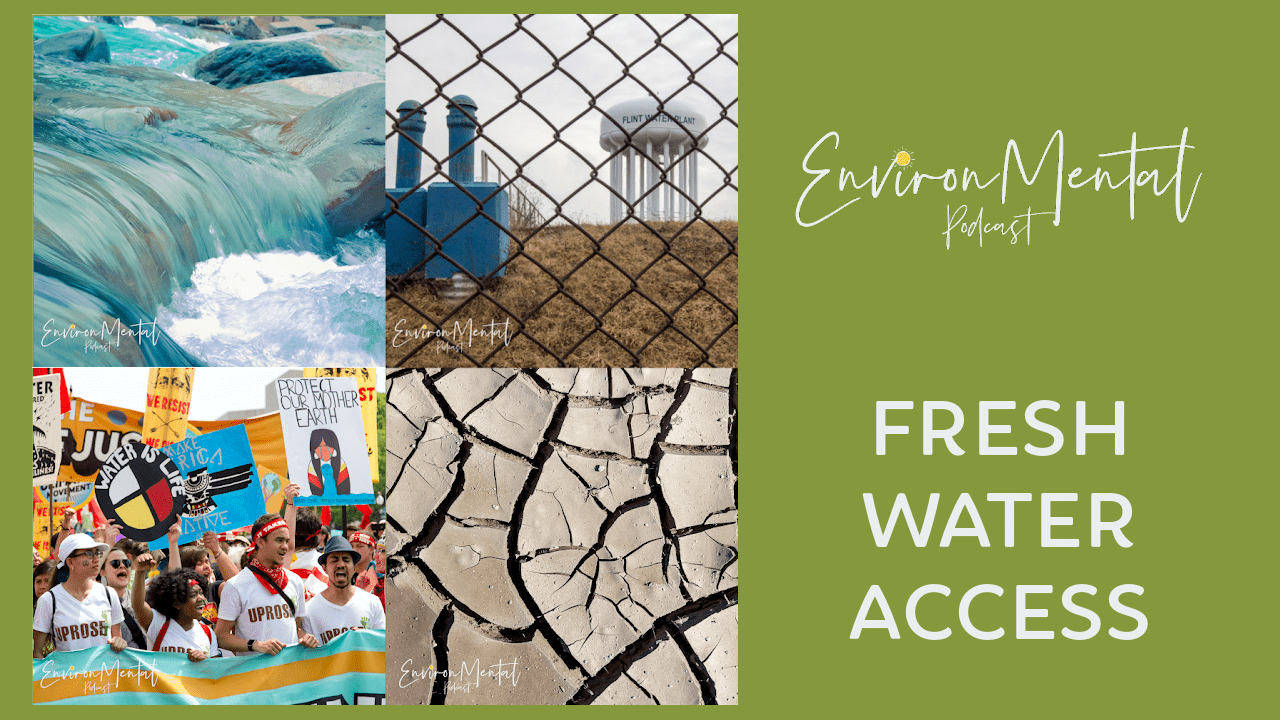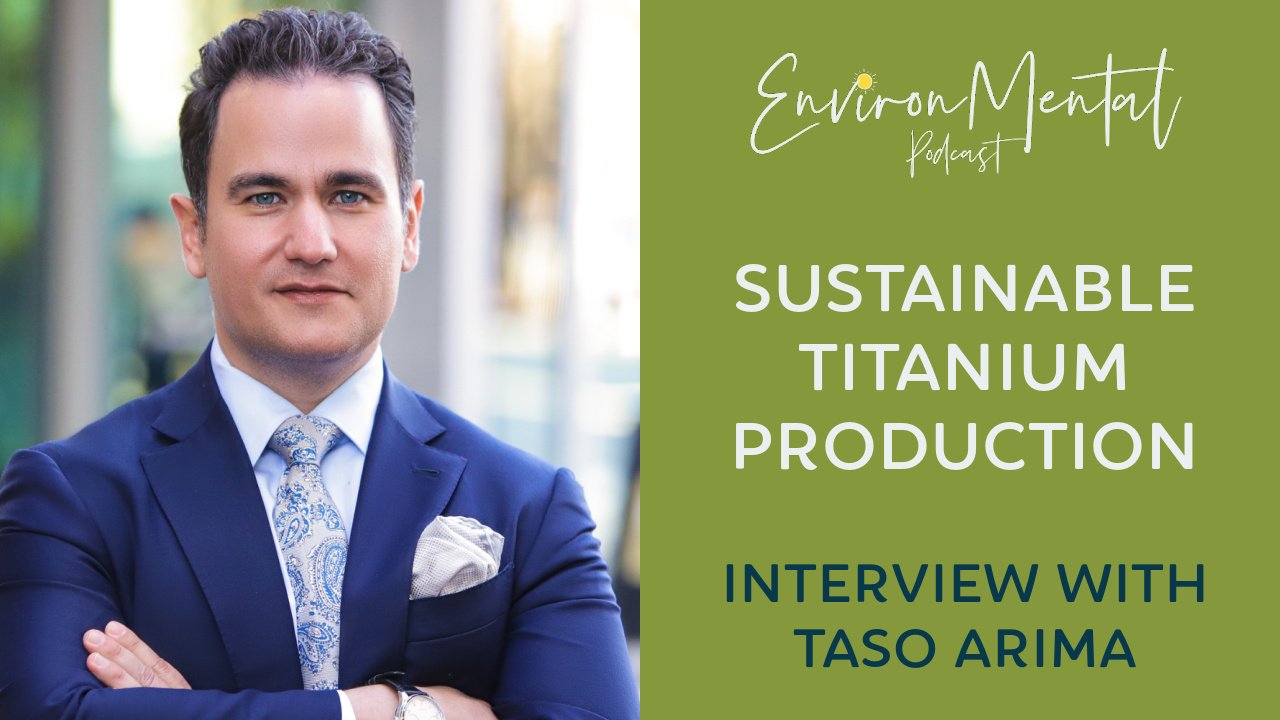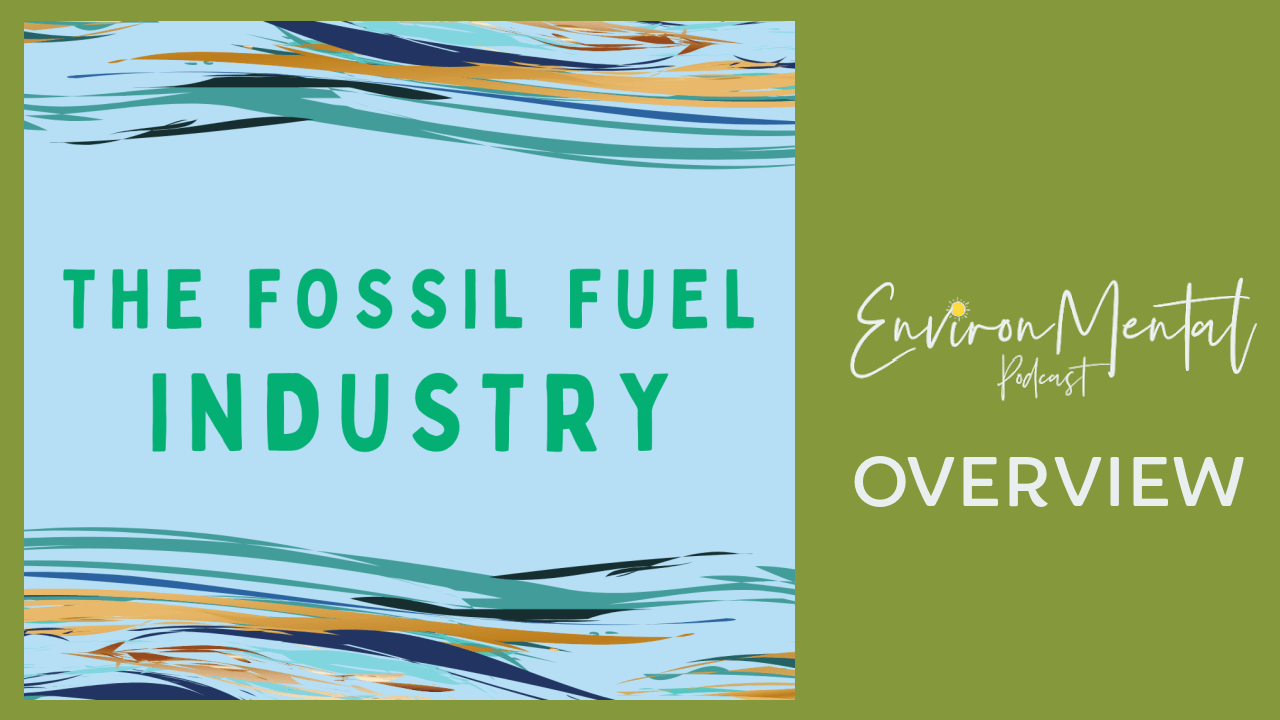We work with brands that are focused on sustainability because it’s one of our biggest passions. We think sustainability should be a mainstream focus. And we think real information should be readily available in an easy way to understand.
Ah, but there’s the problem. “Sustainability” is a buzzword these days, and greenwashing is a real problem. So to help combat that, we created EnvironMental Podcast with Dandelion. EnvironMental gives us the opportunity to investigate different aspects of sustainability through a social and (you guessed it) an environmental lens. We choose a sustainability theme and spend weeks talking about it, diving deeper and deeper as we go.
When we feel ready to move on, I write up our investigative article to share what we learned, and how a small business can have a positive impact. (That’s where you are now. Welcome, friend.)
Our latest topic is fresh water – and more specifically fresh water access. I linked each of our podcasts at the end of this article for you to get more specific information.
The Truth about the Global Water Crisis and Fresh Water Access
We don’t have a water shortage problem
We have a water usage problem, and a water pollution problem.
The global water cycle is really cool. Think of it sort of like energy. It can’t be created or destroyed. It is just in a phase within the cycle.
So we don’t HAVE less (or more) water than ever, but we are USING more.
We are also polluting more. That pollution makes it way more difficult for the water to move through the water cycle. It also makes it way harder for us to use the water we have. Like, it’s still water. It’s just toxic.
The number one polluter is flying under our radar
QUICK take a guess at who the number one water polluter in the world is!
Unless you listen to EnvironMental, you’re probably wrong. Because most people say something like, “big ag!” or “Shell” “Dow Chemical.” All of which do pollute a lot of waterways, but all of them are WAY under the big guns in this conversation.
Literally.
That’s because the number one water polluter in the world is a private defense company called Northrop Grumman. I will not apologize for my pun. According to statista, Northrup Grumman pollutes 3x more than the worlds largest chemical company.
We talked about this when we covered fossil fuels (because if something shady is going down, you know those guys are involved) but basically, private defense contractors are huge behind the scenes players in global politics.
They are intergovernmental and they operate on foriegn soils all the time. So their involvement is often hard to track, and their projects are typically classified. But these projects and operations are causing massive water pollution issues.
Wanna take bets on whether they have to follow the same pollution regulations? No? Didn’t think so.
Deforestation has a surprising impact on fresh water access
Another industry working in the intergovernmental grey area is the agricultural industry. It’s the leading cause of deforestation in the world.
For some numbers for you:
- According to the UN Food and Ag Org, there are 10billion hectares chopped down per year on average.
- That is the equivalent of more than 51,000,000 football fields every day. (I used a converter for this one. It’s hard to believe.)
So yeah. Deforestation is a bummer.
It’s also really negatively impacting the water cycle. We read Judith Swartz book, Water in Plain Sight and this was one of our main takeaways.
Trees act as a way for water vapor to travel across land. So when coasts are deforested, storms tend to stay over the oceans. Without inland storms, we start to see droughts. When the droughts persist, desertification sets in. Desertification causes issues like topsoil erosion, unhealthy crop yields, and further loss of biodiversity.
WHY ISN’T THAT BIGGER NEWS? Because (for now), we can build infrastructure to bring water to affluent cities and farmland that experience desertification.
Fresh water access issues disproportionately impact people of color
That water has to come from somewhere though, and someone has to pay for it. This is something that we see over and over again. Issues that impact our society have a significantly heavier impact on communities of color.
We’ve covered racism in the food industry, serious human rights violations by fossil fuel companies, and the disregard for indigenous people throughout the deforestation conversation. We even covered it when we talked about ethical sourcing! Every single time we look deeper into an aspect of sustainability we find blatant examples of racism. Honestly, access to fresh water may offer the clearest example yet.
We took a deeper look at both the Flint, Michigan water crisis and the issues surrounding the Dakota access pipeline for examples of how fresh water access is treated. In both cases, the communities that were impacted are predominately black and brown. And in both cases, the community was ignored.
Flint citizens didn’t have access to fresh water for four years – despite expert questioning and reports issued within a month of the changes to the community’s water supply. The Sioux tribe was similarly ignored when they sued and protested a pipeline that could absolutely (and now has) impacted their main source of fresh water.
While these are the two examples that we covered in depth, these aren’t one-off instances. There are infrastructure issues, cost cutting projects, and gaslighting rhetoric within communities of color that lead to problems with fresh water access around the world.
Being “water wise” isn’t the answer
All of this basically means that all those, BE WATER WISE ads you see are mid-grade bullshit.
Oh, of course it’s really important to do your part. Sure. Absolutely.
Here are some general things to consider:
- Turn the water off while you’re brushing your teeth.
- Don’t spray your driveway to clean it when you can just sweep
- Use your shower warm up water to flush the toilet
- Collect rainwater for your plants
- Limit your shower time
- Scrape and soak your dishes before washing them
But remember, you didn’t create the crisis. Your long showers and lush gardens are NOT the main problem here. That’s propaganda from the large corporations, put forward by governments that cut infrastructure costs only to turn around and fund major polluters. Yes. I went there.
3 Ways Your Small Business Can Actually Make a Difference in the Fresh Water Access Crisis
Alright, so honestly, the water crisis is pretty bleak. There are huge systemic issues, and inter-governmental actors at play. There isn’t a lot we can do individually that we haven’t been propagandized to for decades already.
BUT small businesses can make some big differences here.
1 – Source local, native ingredients
I think I say this in every EnvironMental post. Get a handle on your supply chain.
Not only can this help with social issues that run rampant in the opaque supply chain culture, you’ll be able to ensure that your sourcing isn’t contributing to the water crisis.
I always say to source locally. But where water is concerned, just choosing “local” isn’t enough. Go one step further and make sure that your ingredients are native or naturalized in the area that they’re being sourced from. Could that mean changing your ingredient list? Probably.
But think about it, it doesn’t matter if your avocado oil was grown down the road from you if you’re living in a place that is experiencing drought because it was clear cut to grow avo trees.
2 – Support NGOs and Indigenous groups that are fighting on the front lines
Indigenous groups and NGOs are often on the front lines of protection when it comes to both fresh water access and deforestation – two huge parts of the global water crisis.
Putting support behind these groups not only helps to solve the water crisis in the communities that are most affected, it helps to amplify the black and brown voices that deserve to be heard.
Just be sure to find a way to guarantee that the support you offer actually gets to the people that need it most. We suggest partnering 1% for the Planet because they vet all of the causes they work with. You can also offer monetary support or clock in volunteer time.
3 – Get involved politically
If you have the bandwidth, and you feel safe, consider getting political with your actions. This could mean anything from attending protests to petitioning your local authorities. Search for local citizen chapters that are working towards change and sponsor their cause.
As a business owner, you can play a role in shaping your local business and government culture (thanks capitalism!). But only if you take the time to get involved – and its people like you that need to get involved! This role could mean anything. You could be sitting in on political scandal hearings or calling out local development projects that aren’t safe for the environment.
EnvironMental Podcasts Focused on Fresh Water Access
We don’t own the Earth or its resources – Diving into the Fresh Water Crisis | EnvironMental Podcast
In this episode of EnvironMental we start our investigation into the fresh water crisis we’re facing right now.
The gross misuse of water by the energy, agriculture, and fashion industries are leading to a rapidly approaching end of fresh water availability. There’s a lot of work to do on a large scale, but individual action can make a difference!
The Flint Water Crisis | EnvironMental Podcast – Fresh Water
This week on the podcast, we really started diving into fresh water access.
In the US, having access to fresh water is treated like a privilege, especially for poor communities. The clearest example of that is the Flint Water Crisis.
aub shares the timeline of events because every step of the way that shows how severely mishandled this situation was from the start. It shows the blatant disregard for the Flint community.
Water Protectors: The Dakota Access Pipeline & Line 3 | EnvironMental Podcast – Fresh Water
Then Courtney did a deep dive into the dangers of the Dakota Access Pipeline and Line Three.
The Dakota Access Pipeline gained media attention in 2016 when the Sioux tribe sued the government over the construction project. Despite the protests the pipeline was built and all lawsuits were eventually (and unfortunately) dropped.
Now, the current pipeline project underway is called Line 3. This pipeline would travel across the Mississippi river, over 200 other waterways, and miles of marshlands.
Do we never learn? (hint: no)
Water In Plain Sight | EnvironMental Podcast – Fresh Water
That lead us to wonder about the water cycle and fresh water access as part of the global water crisis. We decided to read the book Water in Plain Sight by Judith Schwartz.
Why are we seeing record droughts in some places and record rains in others? Is our soil really degrading? Why are industrial farms so vulnerable to flooding? Are these issues connected?
According to Schwartz the answer to that question is YES!
The Water Crisis is Not On Your Shoulders | EnvironMental Podcast – Fresh Water
In the first episode, we said that individual action can make a difference, and this isn’t untrue. But after looking deeper into this issue, it’s clear that the water crisis is not on the individual to change.
Because we don’t have a water shortage problem.
We have a water USAGE and POLLUTION problem.
Your day to day activities don’t make up for the massive polluters like Northrup Grumman.
They don’t keep big ag from growing non-native crops and using tons of water for irrigation that erodes soil health.
They don’t stop the deforestation that impacts the water cycle and causes inland drought.
And they don’t help us build new infrastructures to help us harvest and recycle wastewater.
All of our Fresh Water Access Resources:
The Book:
- Water in Plain Sight by Judith Schwartz
Online Resources:
Introduction to Fresh Water Access
- https://www.theworldcounts.com/challenges/planet-earth/freshwater/when-will-the-world-run-out-of-water/story
- https://www.usgs.gov/special-topic/water-science-school/science/how-much-water-there-earth?qt-science_center_objects=0#qt-science_center_objects
- https://www.nationalgeographic.com/environment/article/freshwater-crisis
- Water Usage Stats: https://www.motherjones.com/food/2015/04/blue-jeans-cars-microchips-water-use/
- Uses of water in industry: https://www.aquatechtrade.com/news/industrial-water/industrial-water-essential-guide/
Flint Episode
- Stats and US stats from the US Census Bureau.
- Flint Timeline from NPR: https://www.npr.org/sections/thetwo-way/2016/04/20/465545378/lead-laced-water-in-flint-a-step-by-step-look-at-the-makings-of-a-crisis?t=1628953587723
- Associated Press timeline: https://apnews.com/article/us-news-health-michigan-rick-snyder-flint-7295d05da09d7d5b1184b0e349545897
- The September 2015 health advisory to the citizens of Flint: http://flintwaterstudy.org/2015/09/public-health-advisory-regarding-lead-in-flint-water-from-the-genesee-county-board-of-commissioners/
- The 2017 Michigan Civil Rights Commission statement: The Flint Water Crisis: Systemic Racism through the Lens of Flint https://www.michigan.gov/documents/mdcr/VFlintCrisisRep-F-Edited3-13-17_554317_7.pdf
- Evidence of the cover up found: https://www.mlive.com/news/flint/2019/04/millions-of-flint-water-documents-found-in-basement-prosecutors-claim.html
- The most current info on Rick Snyder charges: https://www.clickondetroit.com/news/michigan/2021/03/18/ex-michigan-gov-rick-snyder-loses-challenge-to-flint-water-charges/
Water Protector Episode
- https://conbio.org/publications/scb-news-blog/scientists-sign-letter-against-dakota-access-pipeline
- https://www.reuters.com/business/energy/federal-court-closes-dakota-access-case-allows-fresh-challenges-2021-06-22/
- https://elpc.org/blog/nothing-suggests-line-3-pipeline-can-comply-with-minnesota-water-quality-standards/
- https://www.honorearth.org/
- https://www.stopline3.org/
The Final Episode
- https://www.circleofblue.org/2010/world/experts-name-the-top-19-solutions-to-the-global-freshwater-crisis/
- https://www.worldvision.com.au/global-water-crisis-facts
- https://www.waterlogic.com/en-us/resources-blog/how-people-are-resolving-to-reduce-water-scarcity/
- https://saveourwater.com/en/How-to-Save-Water/Around-the-House
- Largest Corporate Water Polluters! (2018): https://www.statista.com/statistics/799176/largest-corporate-water-polluters-in-the-us/
- Northrop Grumman – a private defense contractor (They pollute like 3x more than the #2 corp)
- BASF – German multinational chemical company and the largest chemical producer in the world
- LyondellBasell – one of the largest plastics, chemicals and refining companies in the world.




